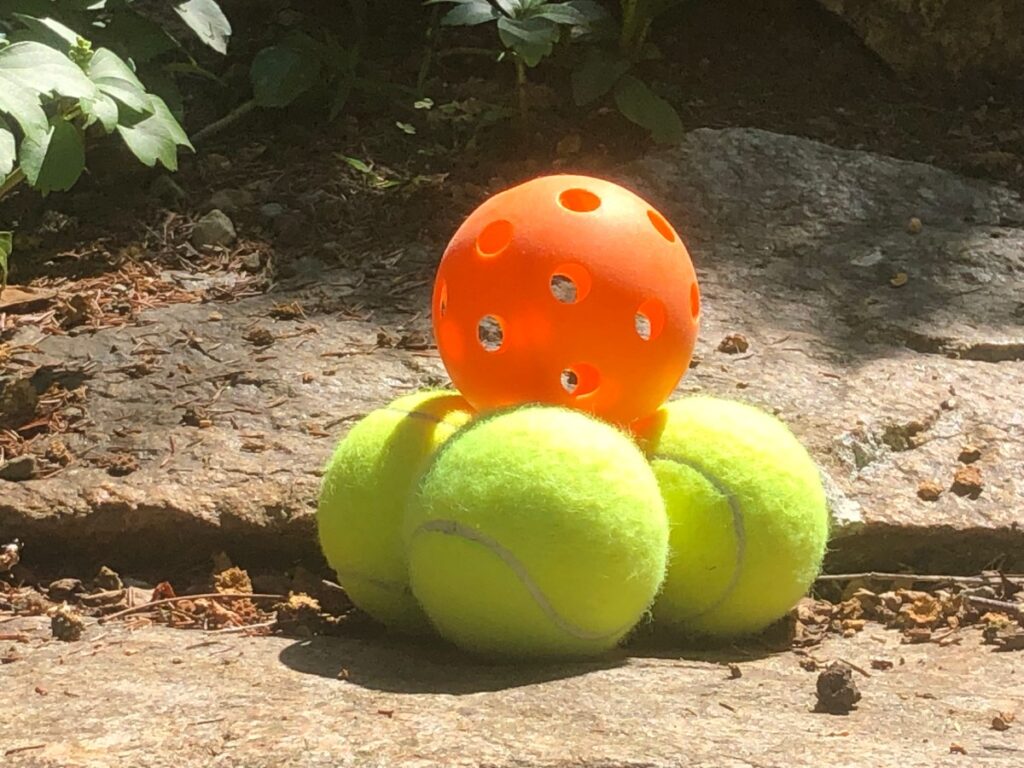Who says you can’t start a monthly challenge on the 15th? Self-improvement is hard enough without setting arbitrary time constraints on it. I say, when you feel a passing interest in working on something, you better seize the moment. God knows when that feeling will come around again.
For the remainder of August, and perhaps through mid-September, I’ll be working on my reaction time. (Technically, reaction time is a cognitive process, while reflexes are not, but for this post I’ll be using the terms interchangeably.)
I probably don’t have to tell you that your reaction time gets worse with age. (I don’t know about you, but I have yet to find anything that gets better.) Left to their own devices, our cognitive processing time and neuron speeds slow down by milliseconds with each passing decade for even the simplest demands. Milliseconds may not sound like much, but they’re precious when faced with an oncoming tennis ball.
I can remember a couple of instances in the misty past where I frankly astonished myself by snatching a spice jar mid-fall or nabbing a runaway paper as it wafted erratically in the breeze. Those rapid reflexes correlated with a time when I was a good volleyer. My tennis game was steadily improving, largely propelled by quick hands at the net.
Nowadays I’m the same distance from the net, often facing the same opponents from my earlier years, but I’m not responding to the ball nearly as fast. I’m keenly aware of the delay, and my awareness of being slower makes me more hesitant to go for the ball. Which means I hit fewer volleys, which means less practice at making quick movements, which leads, I fear, to even duller reflexes.
My admittedly hasty research for this blog post didn’t turn up much to suggest that at my age I can improve my reaction time; I can only slow its decline. But I have faith. So much of what was once thought inevitable in aging — cognitive decline, weight gain, muscle loss — is now understood to be as much a function of disuse rather than simply nature’s plan. I expect, or at least hope, that the same use-it-or-lose-it principle will hold true for reflexes.
So what do the researchers suggest for slowing the decline in, if not improving, reaction time? All the usual suspects — good diet, adequate sleep, physical activity, blah blah blah — and playing video games.
But I neither own nor particularly enjoy video games. Besides, I have a very specific reflex I want to improve: my net game.
To that end, my half-month challenge: Hit pickleball volleys against the wall for at least 15 minutes, three to four times a week. I did my first session yesterday.
Why pickleball and not tennis? A pickleball doesn’t rebound like a tennis ball does, so it’s a little easier to control. I also don’t need the same wrist strength as would be required to volley a tennis ball continuously for 15 minutes.
Why the wall? Why not just play pickleball? First, the ball comes back twice as fast when you hit against the wall. And second, playing against the wall removes all the interpersonal stuff that can interfere with getting in the zone. All those little doubts and fears that bubble in the back of my mind (“Was that my partner’s ball?” “Are the other players annoyed that I’m not at their level?” “If I miss this shot, we’ll be down set point!”) are a hindrance to letting reflexes and muscle memory take over. It’s much easier to focus on what I want to focus on when I take other people out of the equation.
(Also, I just love the wall. Here’s my first wall-based challenge, as well as the post on consistency that inspired it.)
I have high hopes for my reflex challenge, but I have to say, even if it doesn’t improve my reaction time, it’s great fun to do. It’s also pretty good exercise, forcing me to stay low and use my quads to make all those quick adjustments. Apparently having good hands is about more than just your hands.
It’s worth mentioning that reaction time matters even more outside the tennis court. It’s one of the key factors in both the frequency and severity of falls for older people. With slower reflexes, you can’t quickly grab a stair railing or throw out an arm to break your fall. Delayed reaction time also contributes to car accidents for older people, leading to that dreaded day your adult children take your keys away.
But those grim scenarios seem far off in the future, much too distant to inspire a self-improvement challenge. My tennis game is my present, and it gives me more than ample incentive to try to keep my reflexes sharp.
Anybody else use pickleball to improve their tennis game? And am I writing off video games too quickly? What ones should I try? Scroll on down to the comments and let me know!
Like this:
Loading…
Discover more from Little Yellow Ball
Subscribe to get the latest posts sent to your email.

